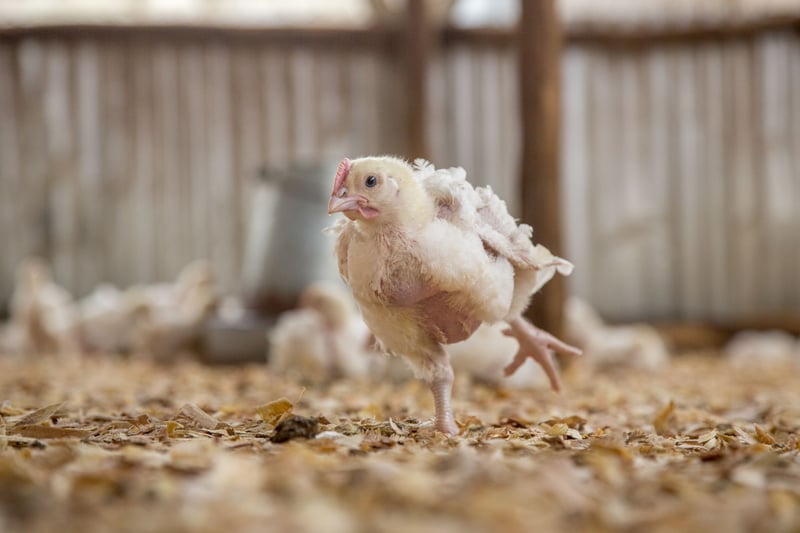
Panera Bread makes industry-leading commitment to improve welfare of chickens
News
Panera is one of the first major restaurant brands in the United States to announce an animal welfare commitment of this magnitude for broiler chickens.
World Animal Protection welcomes the commitment made by national bakery/café chain Panera Bread to improve the welfare of the chickens farmed for meat, known as broiler chickens, in its supply chain. Panera’s commitment includes critical and much-needed animal welfare measures, including using slower-growing chicken breeds, providing birds with more space, and offering improved living environments with natural lighting and enrichments for chickens.
“We applaud Panera Bread for this industry-leading commitment to give chickens better lives,” says Priscilla Ma, U.S. Executive Director of World Animal Protection. “We’re honored to have had the opportunity to work with the company in identifying opportunities to improve animal welfare practices, and the steps Panera is taking will have a significant positive impact for chickens. We echo Panera’s call to the wider food industry to work together to bring about sustainable change that chickens need and consumers want.”
Panera is one of the first major restaurant brands in the United States to announce an animal welfare commitment of this magnitude for broiler chickens. Compass Group USA, Aramark, and Perdue Foods, the country’s fourth-largest national poultry producer, have also announced commitments this year to improve the welfare of broiler chickens.
On average, sixty billion meat chickens are raised for global consumption each year. An estimated two-thirds of these animals (40 billion) live in overcrowded sheds or cages with little or no natural light or fresh air, unable to perform many natural behaviors, such as foraging, perching, and dustbathing. Many chickens will experience painful conditions including lameness (difficulty walking) and suffer overworked hearts and lungs as a result of an unnatural growth rate, and wounds like skin sores and burns from spending too long in wet, poorly managed litter. By committing to practical improvements that directly address these severe animal welfare problems, food companies can transform the welfare of the chickens in their supply chain.
Through our Change for chickens campaign, we are calling on food retailers, including KFC, to improve the welfare of the billions of chickens farmed for meat around the world. We are calling for:
- The use of chicken breeds that grow at a slower, more natural rate
- More living space for chickens
- More enrichments for chickens to engage with and explore, such as perches and hay bales
- The introduction of natural light in sheds
“Panera is implementing the far-reaching change for chickens that we’re hoping for from the food industry at large,” adds Ma. “Through the cage-free egg movement, consumers have shown that animal welfare is important to them in their purchasing decisions, and today’s businesses must take this into account. Importantly, Panera has also committed to reporting publicly on its progress in implementing its animal welfare commitments, and we look forward to following the company’s progress.”
“We’re honored to have had the opportunity to work with the company in identifying opportunities to improve animal welfare practices, and the steps Panera is taking will have a significant positive impact for chickens, says Priscilla Ma, U.S. Executive Director of World Animal Protection.